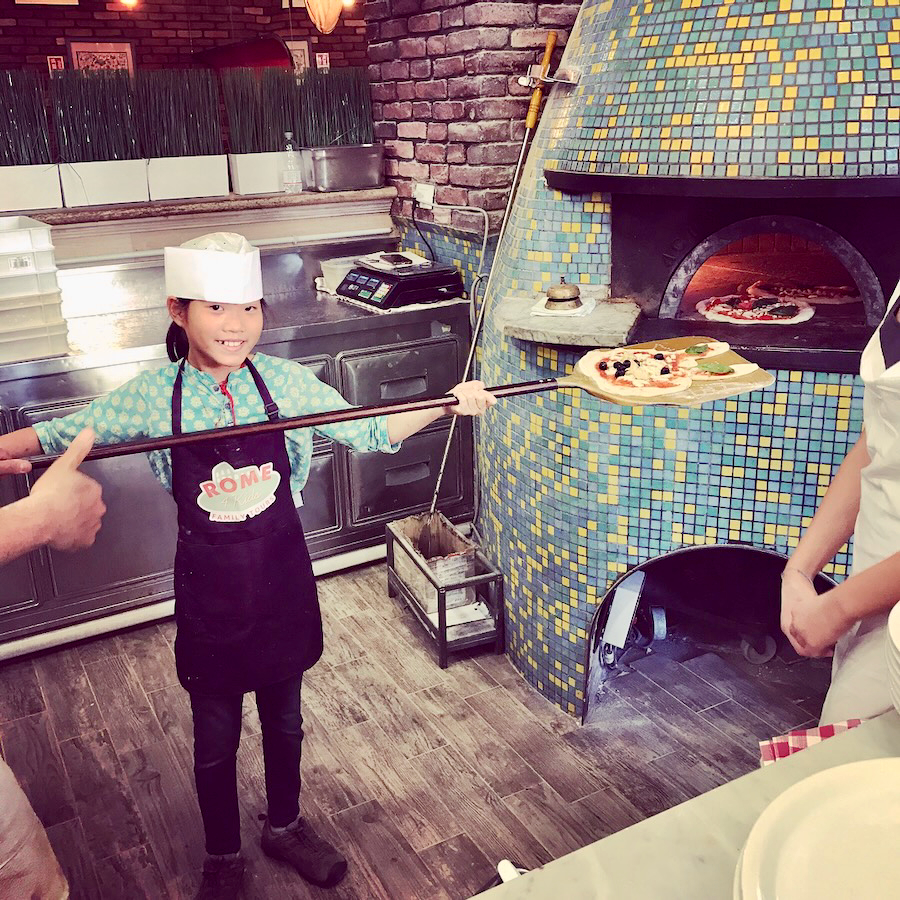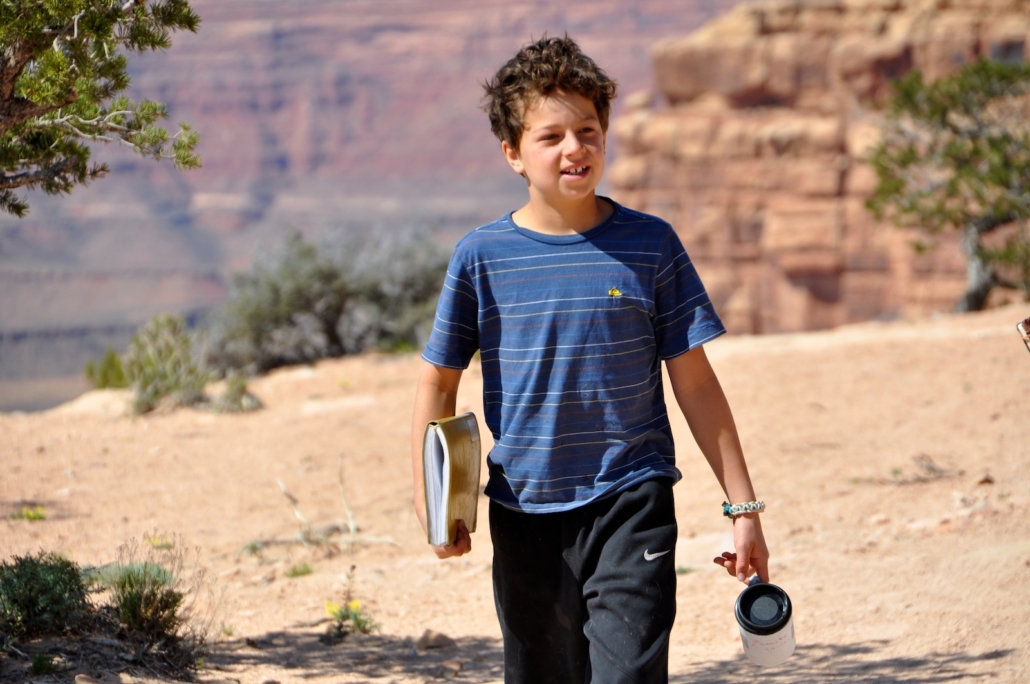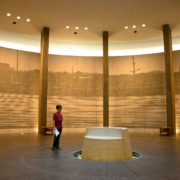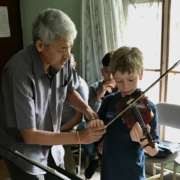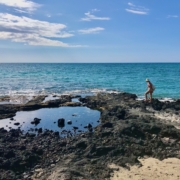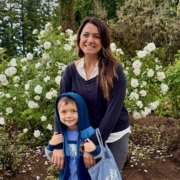What Is Worldschooling? A Comprehensive Guide
This blog breaks down the question, what is worldschooling? We share a sneak peek at other worldschooling families, an exploration of alternative education, and a look at long-term family travel. Read about the terms, the obstacles and solutions, and all the various ways you and your family can worldschool, too.
Simply put, worldschooling is learning through direct interaction with the world.
What is worldschooling, anyway? Worldschooling is an educational approach shaped by experiential learning in the world. Worldschooling is a form of education that combines family travel and experiential learning. More and more families are wondering if worldschooling is a good choice for them. The New York Times explores that very question in the article Taking Off From School to Take In the World. Rather than being confined to a traditional classroom setting, worldschooling families believe real-world experiences provide unique moments for enhanced learning. Family travel presents constant opportunities to learn through cultural immersion, language development, nature study, and life skills.
Undeniably, worldschooling is a growing trend alongside other alternative education approaches such as unschooling, roadschooling, and forest kindergartens. While there are no quantitative data on the actual number of worldschoolers today, we can look at proxies to understand that it is a growing trend. For example, membership in worldschooling Facebook groups has tripled in the last five years. There is also substantial growth in the number of digital nomads, with 35 million digital nomads around the globe today. Reports project that by 2050, 70% of digital nomads will be digital nomad families who have their kids with them. The popular travel site booking.com showed marked increases in family travel trends, with an 8% bump in searches for family accommodations and a 21% jump in family air travel heading into the summer 2024 travel season.
How Worldschooling Works: A Unique Educational Approach
Worldschooling is an approach to education that allows children to learn through global experiences about different cultures, languages, history, science, geography, and social dynamics by experiencing them firsthand. It often involves families traveling to other countries or regions, exploring local attractions, engaging with local communities, and participating in activities and experiences that enhance learning.
One of the limitations of classroom learning is that we tend to learn about others. With worldschooling, we begin to learn from others. It’s an exchange. Learners create their own opinions based on direct experiences rather than secondary interpretations, or what they hear from others or read in a textbook. Children might conclude, for example, that countries maligned in mainstream US media are full of good and kind people. Worldschooling is fact-finding; worldschooling is peacebuilding. Worldschooling is driven by wonder and curiosity.
Worldschooling curricula can be open or structured. Some worldschooling families approach every day as a serendipitous place-based exploration. Others choose more structure and purchase online curricula with coursework, deliverables, and timelines. There are infinite possibilities for worldschooling. You might follow theme-driven studies with a deep dive into a family interest such as food, animals, or fashion. Worldschooling can be subject-driven with an exploration of architecture, history, geography, or literature. Working with tutors is possible and some families arrange to stay connected to classrooms and teachers back home. Shall we say the world is your educational oyster?
Over the past couple of decades, the term worldschooling has gained traction. Sometimes called roadschooling or unschooling; many people have helped shape the zeitgeist of worldschooling. One of these early contributors, Eli Gerzon, wrote, “It’s when the whole world is your school, instead of school being your whole world.”
Benefits for Families
There are many benefits of worldschooling for families. First of all, worldschooling plants seeds of curiosity in people of all ages. Spending time as a family outside of your typical routine and experiencing new things every day awakens a sense of wonder and purpose in all of us. Daily discovery is novel and traveling families have so many amazing things to talk about over dinner together. Over time, these shared stories become family legend. We like to say worldschooling as a family creates lifelong learners and creates a backpack full of memories.
Worldschooling as a family is experiential. Long-term family travel is like one massively cool field trip with room for everyone to contribute. Families might learn a new language or dive into history, geography, culinary traditions, or marine biology through actual experiences. This hands-on approach keeps kids interested and active and helps them retain information because they’re living it. In addition, travel presents excellent opportunities to develop life skills that are naturally part of an experiential curriculum. These life lessons might include learning to read a bus schedule, change the oil in a camper van, wash laundry in a hotel sink, or make soup in an outdoor camp kitchen. Maybe your kids will learn to navigate busy markets, figure out what to order when they can’t read a menu, or develop organizational systems for keeping track of stuff. Through these life experiences, worldschooling builds resilience, pragmatism, grit, cooperation, and other 21st century skills.
There are so many social and emotional benefits of worldschooling as a family. Experiential learning in the world builds global awareness, tolerance, and cultural competency. Traveling kids make new friends, practice engaging with people of many ages and backgrounds, and learn to form their own opinions about the world around them. Looking inward, too, there are profound benefits for families who worldschool. Travel is transformative and family members grow from being in motion together. Every traveling family we have met and interviewed had a similar conclusion: their family became closer, more connected, and appreciative of each other. Families report that they became a “unit,” and this sense of togetherness adds to the many beautiful and enduring benefits of worldschooling as a family.
Worldschooling vs. Homeschooling vs. Unschooling
As we’ve noted, there’s no right or wrong way to worldschool. What is worldschooling as compared to homeschooling or unschooling?
- Homeschooling: learning at home rather than at a public or private institution
- Worldschooling: learning through direct interaction with the world; may be considered homeschooling while traveling
- Unschooling: using students’ curiosities and interests instead of prescribed curricula to drive self-paced learning.
Alternative education terms often overlap or are used interchangeably. We hope these definitions and context help you enter the conversation and community. For example, many homeschoolers incorporate elements of worldschooling in the form of field trips or experiential learning. Most worldschoolers increasingly dip their toes into unschooling. In fact, through all of our research, we find a theme: most worldschooling families trend toward unschooling as time passes.
For a peek at what worldschooling can look like, check out our Fernweh Families posts in this blog. We hope they help inspire your own journey!
Challenges and Solutions in Long-Term Family Travel
While you may be excited to worldschool with your family, you might also see obstacles that make this lifestyle seem impossible. Most common among them are financial and career challenges. We’re here to tell you that worldschooling on a budget is doable.
Worldschooling on a Budget
You might think that worldschooling is only for the wealthy, but that simply isn’t true. Families are making it work on budgets of all sizes. People use many unique avenues to fund “long-term family travel,” or worldschooling while traveling. A few of these include saving up, working while traveling, taking on remote work, starting a blog or website, and finding ways to cut expenses they would have had at home. Our book breaks down how to make money on the road, how to live simply while on the move, and how to reduce costs where possible. We also have a series of blogs that break down the money questions, like: “How Do Families Afford Long-Term Travel?”
Educating Your Kids
You might think to yourself, “How can I educate my kids if I’m not a teacher?” There are as many paths to worldschooling as there are paths in the world. Some parents want more structure, academic focus, and alignment with traditional school standards, while others prefer spontaneity and freedom. To be sure, worldschooling is not something you sign up for. There’s no one to register with, no dogma or governing institution. It’s driven by curiosity and wonder. There is a vast library of resources to support worldschooling journeys. There’s also a burgeoning worldschooling community eager to connect, offer support, and share experiences. We walk readers through the ins and outs of designing a worldschooling curriculum that works for them in our book, Wonder Year: A Guide to Long-Term Family Travel and Worldschooling.
You may not know this, but as a parent in the United States, you have the right to withdraw your child from traditional school and choose an alternative means to educate them. Some districts offer free, fully online options you can do from anywhere. Free! Hundreds of online private schools include synchronous or asynchronous learning, some with textbooks and some 100% online. Or, you can mix a bit of this and a bit of that to make it your own. In most states, you will need to register your kids as homeschoolers. In some cases, you will need to record what you teach them and how you teach it. And then you get to watch the magic unfold. What happens when your concept of education expands beyond the four walls of a classroom? What happens when you notice learning opportunities can be anywhere at any time? The world becomes your school.
Worldschooling can be:
- taking the Junior Ranger pledge after completing educational activities at Dinosaur National Monument or at one of hundreds of national or state parks
- visiting WWII sites in Normandy, France to understand the legacies of those who battled
- sourcing ingredients and learning to cook kebabs with a hostel owner in Istanbul, Turkey
- learning to tap a rubber tree in Krabi, Thailand
- visiting the bridge on the ferry from Helsinki to Tallinn to learn about navigation equipment
- calculating currency conversion to buy Uyghur currants at the Xinjiang market
- visiting with a ski patrol team in Colorado to learn how dogs become avalanche rescuers
- talking with your elderly neighbor about what life was like when she was a kid
- listening to an audiobook about the ancient Mayans while exploring the temple regions of Guatemala
- learning how to say hello, goodbye, please, and thank you in a different language
- drawing a picture and naming the phase of the moon every night for a month from your campsites
The possibilities are endless.
Worldschooling regulations can be linked to homeschooling laws, and these vary by state. For some quick answers, use this resource that outlines “homeschooling” laws by state (for the United States only).
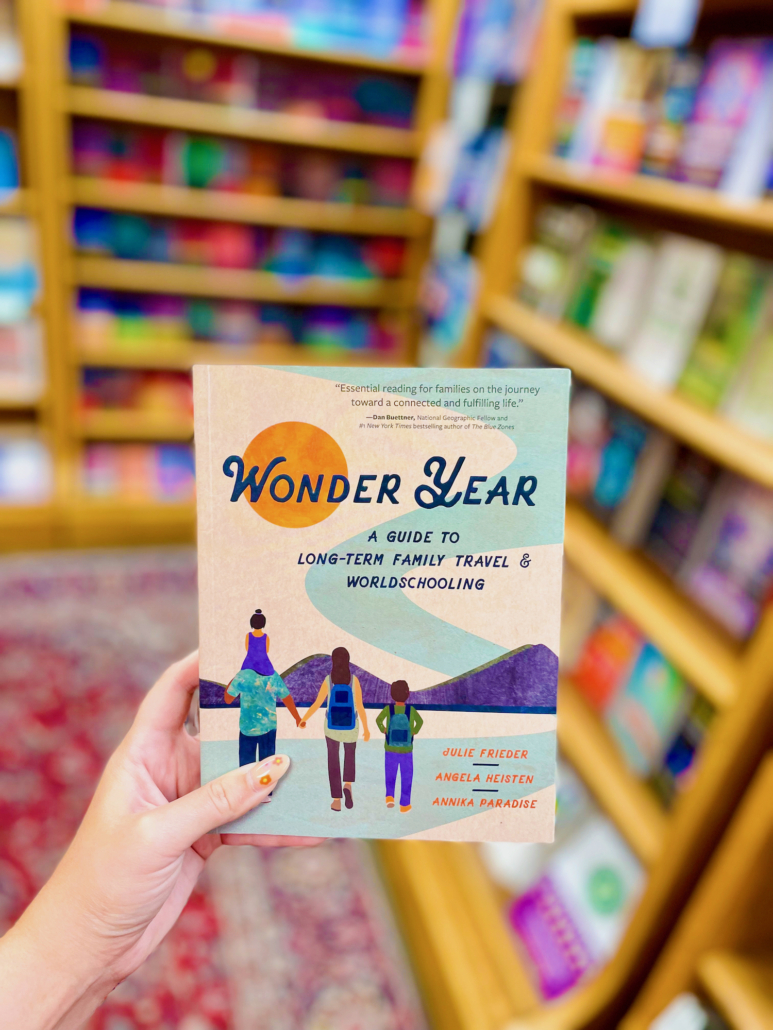
Part inspirational stories and part how-to, this book helps you answer the questions so you can get out there.
How To Start Worldschooling
Because there are endless possibilities, we like to start with what’s important to you and your family. What matters to you? Our book helps you turn your dreams and values into an educational roadmap. We give you the tools and step-by-step plans to actualize the family travel of your dreams.
Most worldschooling families begin by reading, joining online discussion groups, and following some families on social media who are traveling and using the world as their classroom. Instagram and YouTube are great for visuals. In these early stages, you can begin to find alignment with your family. What looks like a dream come true? What looks scary? Have conversations, find common ground, and create a worldschooling budget and financial plan to make it happen. Then, put a date on the calendar so you can start working toward your shared goal.
We share stories, examples, and a collection of resources in our book. You might also check out our blog on Frequently Asked Questions about worldschooling. You do not have to figure it all out on your own! We’re here to help.
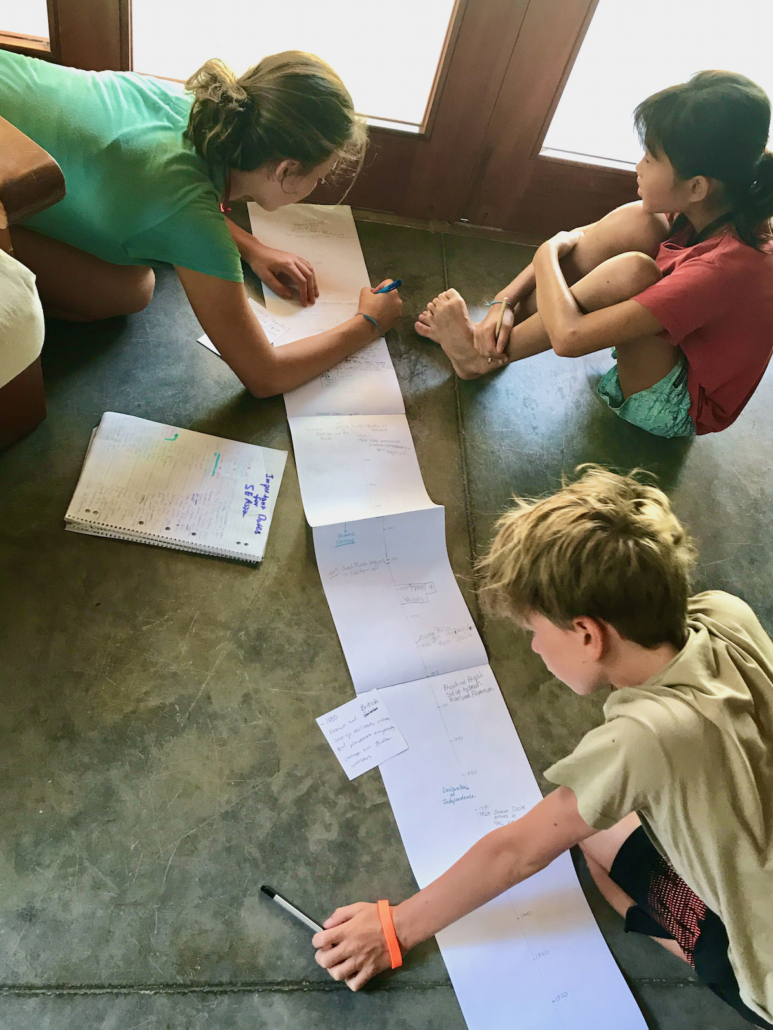
Real family learning! This traveling timeline brought so much deep discussion and shared discoveries.
Some Worldschooling FAQs
Is there a worldschooling curriculum?
- While there is no specific worldschooling curriculum, there are resources available to help structure a worldschooling plan, including the book Wonder Year: A Guide to Long-Term Family Travel and Worldschooling and the authors’ accompanying blog.
Where can I locate worldschooling communities?
- There is a rise in worldschooling communities and worldschooling hubs, which offer resources, support, educational programs, and connections for families who want to combine travel and education for their children.
- Here are some hubs and popups to check out. Many are interviewed in blogs on the Wonder Year website:
What are the best destinations for long-term family travel?
- Some worldschooling destinations are more popular than others. What is important to you in choosing your itinerary? Check out Where Will You Go? Choosing Destinations for Worldschooling to get your gears turning.
- We highlight a few popular destinations, as well as some little-known ones, in our “Destination Inspiration” blogs. Check out this roundup post or find worldschooling destination posts directly here:
For further support and inspiration, you can buy our book, Wonder Year: A Guide to Long-Term Family Travel and Worldschooling, on Amazon, Bookshop.org, Barnes and Noble, and at select REI stores. You can also sign up for our quarterly newsletter, follow us on Instagram @wonderyeartravel or Facebook, or reach out and connect through our website. We’d love to hear from you! Our mission is to help you find your way out the door and into the world.


